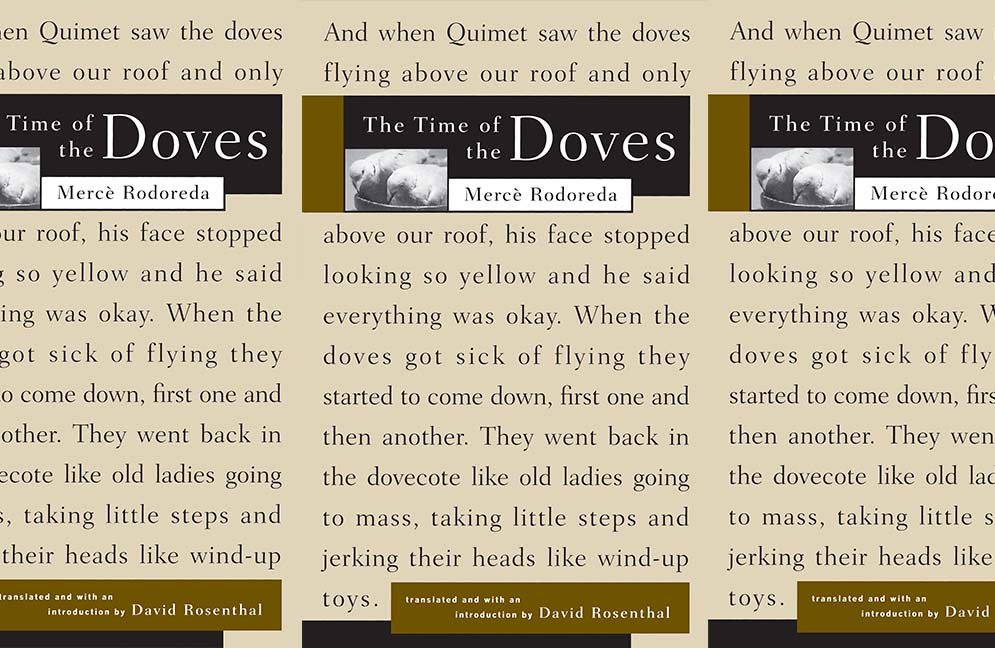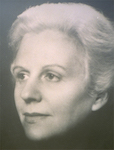 The Book Beat reading group selection for July is The Time of the Doves by Mercè Rodoreda. Our discussion will be held Wednesday, July 26 at 7:00 PM online via Zoom. We are still waiting for the reopening of Goldfish Tea, so until further notice meetings will be held on Zoom. The Zoom link will be sent the afternoon of the meeting to anyone interested in attending. Email bookbeatorders@gmail.com to sign up. Books are in stock now and discounted 15%. Please call (248) 968-1190 for more information.
The Book Beat reading group selection for July is The Time of the Doves by Mercè Rodoreda. Our discussion will be held Wednesday, July 26 at 7:00 PM online via Zoom. We are still waiting for the reopening of Goldfish Tea, so until further notice meetings will be held on Zoom. The Zoom link will be sent the afternoon of the meeting to anyone interested in attending. Email bookbeatorders@gmail.com to sign up. Books are in stock now and discounted 15%. Please call (248) 968-1190 for more information.
The Time of the Doves (La plaça del Diamant) by Mercè Rodoreda is considered one of the most important works of modern Catalan literature. The novel is set in Barcelona and takes place during the years of the Second Republic and the Spanish Civil War. It follows the evolution from youth to maturity of the character Natalia, nicknamed Colometa (“little pigeon”), and her struggles in life as well as her relationships in marriage. Both a survey of Spain during wartime and portrait of an ordinary woman, Gabriel García Márquez calls The Time of the Doves “the most beautiful novel published in Spain since the Civil War.”
An appealing and well-crafted tale of a young woman who’s victimized not only by war and cruel men but by her own unexamined sensibility. — Kirkus Reviews
The Time of the Doves is a book of tender and subtle grace, filled with a deep innocence. — Colm Tóibín, The Times Literary Supplement
The Time of the Doves reminds me that writing can be an act of resistance as well as a reclamation of one’s beliefs, culture, and humanity. — The Millions
 Mercè Rodereda (b. 1908) was born in Barcelona at a time when Catalonia was autonomous and its citizens were allowed to speak, write, and study their own language. She published five novels between 1932 and 1937, and then fled into exile at the end of the Spanish Civil War, when the Catalan culture was brutally suppressed. She did not publish again until 1959. Afterwards, she regularly produced novels and collections of short stories and became a fixture on Catalan best-seller lists. When Franco died, most restrictions on the use of Catalan were lifted, and Rodereda returned to Barcelona, where she died of cancer in 1983.
Mercè Rodereda (b. 1908) was born in Barcelona at a time when Catalonia was autonomous and its citizens were allowed to speak, write, and study their own language. She published five novels between 1932 and 1937, and then fled into exile at the end of the Spanish Civil War, when the Catalan culture was brutally suppressed. She did not publish again until 1959. Afterwards, she regularly produced novels and collections of short stories and became a fixture on Catalan best-seller lists. When Franco died, most restrictions on the use of Catalan were lifted, and Rodereda returned to Barcelona, where she died of cancer in 1983.
